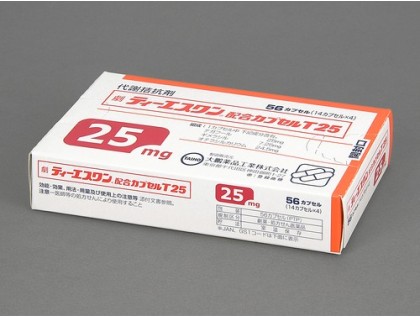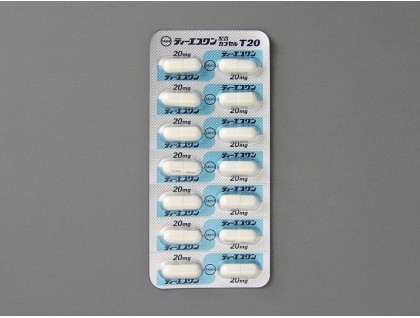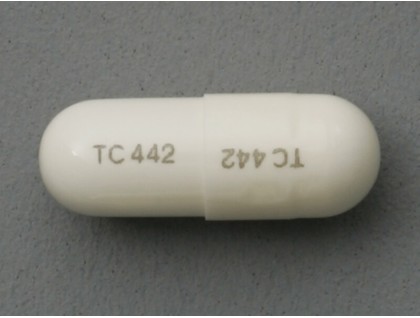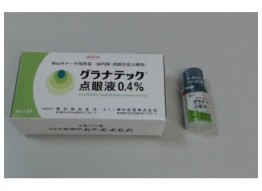What are TS-1 capsules 25 mg for cancer (Teysuno, TS-One)?
TS-1 capsules comprise a combination of three active components: tegafur, gimeracil, and oteracil potassium. Tegafur serves as a chemotherapeutic prodrug of 5-fluorouracil (5-FU), utilized in the treatment of various cancer types. By mimicking pyrimidines, essential components of RNA and DNA, 5-FU integrates itself into DNA and RNA strands, effectively halting the replication process crucial for cancer growth.
Gimeracil plays a pivotal role in preventing the breakdown of fluorouracil (5-FU), thereby maintaining higher concentrations of 5-FU for sustained anti-cancer effects. This mechanism allows for the achievement of elevated 5-FU concentrations with a lower tegafur dose, consequently reducing the risk of toxic side effects. Oteracil potassium, on the other hand, diminishes the activity of 5-FU within the normal gastrointestinal mucosa, thus mitigating gastrointestinal toxicity.
TS-1 capsules demonstrate effectiveness in treating a range of cancers, including gastric cancer, colorectal cancer, head and neck cancer, non-small cell lung cancer, inoperable or recurrent breast cancer, pancreatic cancer, biliary tract cancer, and as postoperative adjuvant chemotherapy for hormone receptor (HR)-positive and human epidermal growth factor receptor 2 (HER2)-negative breast cancer at high risk of recurrence.
Active principles:
- tegafur,
- gimeracil,
- oteracil potassium
Amount: 56 capsules
Maker: TAIHO Pharmaceutical Co., Ltd., Tokyo, Japan
Indications:
- gastric cancer,
- colorectal cancer,
- head and neck cancer,
- non-small cell lung cancer,
- recurrent or unresectable breast cancer,
- pancreatic cancer,
- biliary tract cancer.
How to take
The exact dosage and regimen are to be prescribed by your doctor. The general recommendations are the following.
For gastric cancer, colorectal cancer, head and neck cancer, non-small cell lung cancer, inoperable or recurrent breast cancer, pancreatic cancer, biliary tract cancer: adults should take TS-1 twice a day, after breakfast and dinner for 28 consecutive days, followed by 14-day rest. This is counted as one course and is repeated. Initial standard dose of tegafur is determined based on body surface area (BSA) as follows: 40 mg per dose for patients with a BSA less than 1.25 sq.m., 50 mg per dose for patients with a BSA 1.25 to less than 1.5 sq.m., and 60 mg per dose for patients with a BSA equal to or greater than 1.5 sq.m. The dosage may be adjusted according to the patient's condition. Regarding steps of adjustments, dosage is increased or decreased to 40 mg, 50 mg, 60 mg, or 75 mg. The maximum single dose should not exceed 75 mg, and the minimum single dose is 40 mg.
For postoperative adjuvant chemotherapy for HR-positive and HER2-negative breast cancer at high risk of recurrence: in combination with endocrine therapy, adults should take TS-1 twice a day, after breakfast and dinner for 14 consecutive days, followed by 7-day rest. This is counted as one course and is repeated up to 1 year. Initial standard dose of tegafur is determined based on a BSA as follows: 40 mg per dose for patients with a BSA less than 1.25 sq.m., 50 mg per dose for patients with a BSA 1.25 to less than 1.5 sq.m., and 60 mg per dose for patients with a BSA equal to or greater than 1.5 sq.m. The dosage may be adjusted according to the patient's condition. The maximum single dose should not exceed the initial standard dose.
This medicine contains 25 mg of tegafur in each capsule.
Contraindications: do not use for pregnant, possibly pregnant or breastfeeding women. Do not use for patients with bone marrow suppression (low white blood cell count, etc.), kidney disorder, liver disorder, infections, glucose tolerance disorder or stomach and/or small intestine ulcer or bleeding. Do not use for patients with interstitial pneumonia or heart disease or a history of those. If a patient was taking any fluoropyrimidine-group anti-cancer medicines, an appropriate washout period is required before switching to TS-1.
Important information
TS-1 must not be taken with other fluoropyrimidine-group anti-cancer drugs.
Keep track of your drug intake, your symptoms, and present your records to your pharmacist at your next appointment.
During the treatment, laboratory tests (blood, liver and kidney function tests) should be performed regularly at least once every 2 weeks to detect asymptomatic adverse reactions.
If an allergic reaction occurs, patient needs to stop using the medicine and consult with their doctor. If patient is taking any other medication or treatment, they should consult with their doctor in advance.





